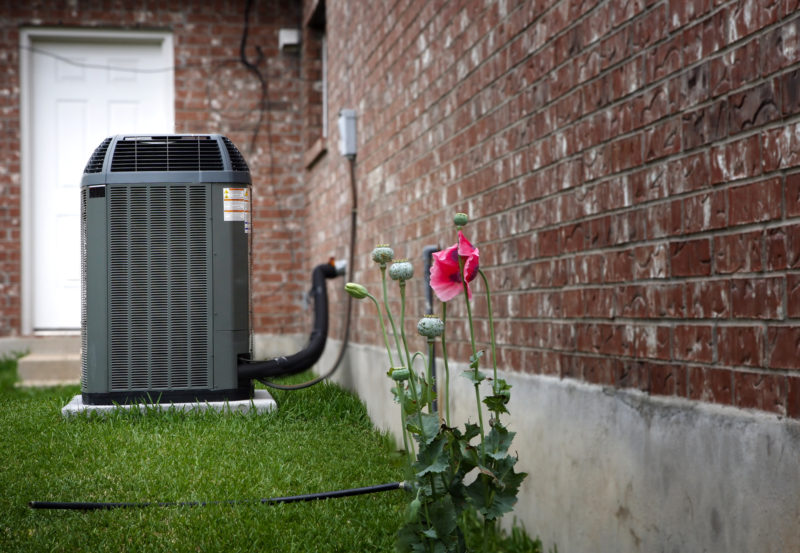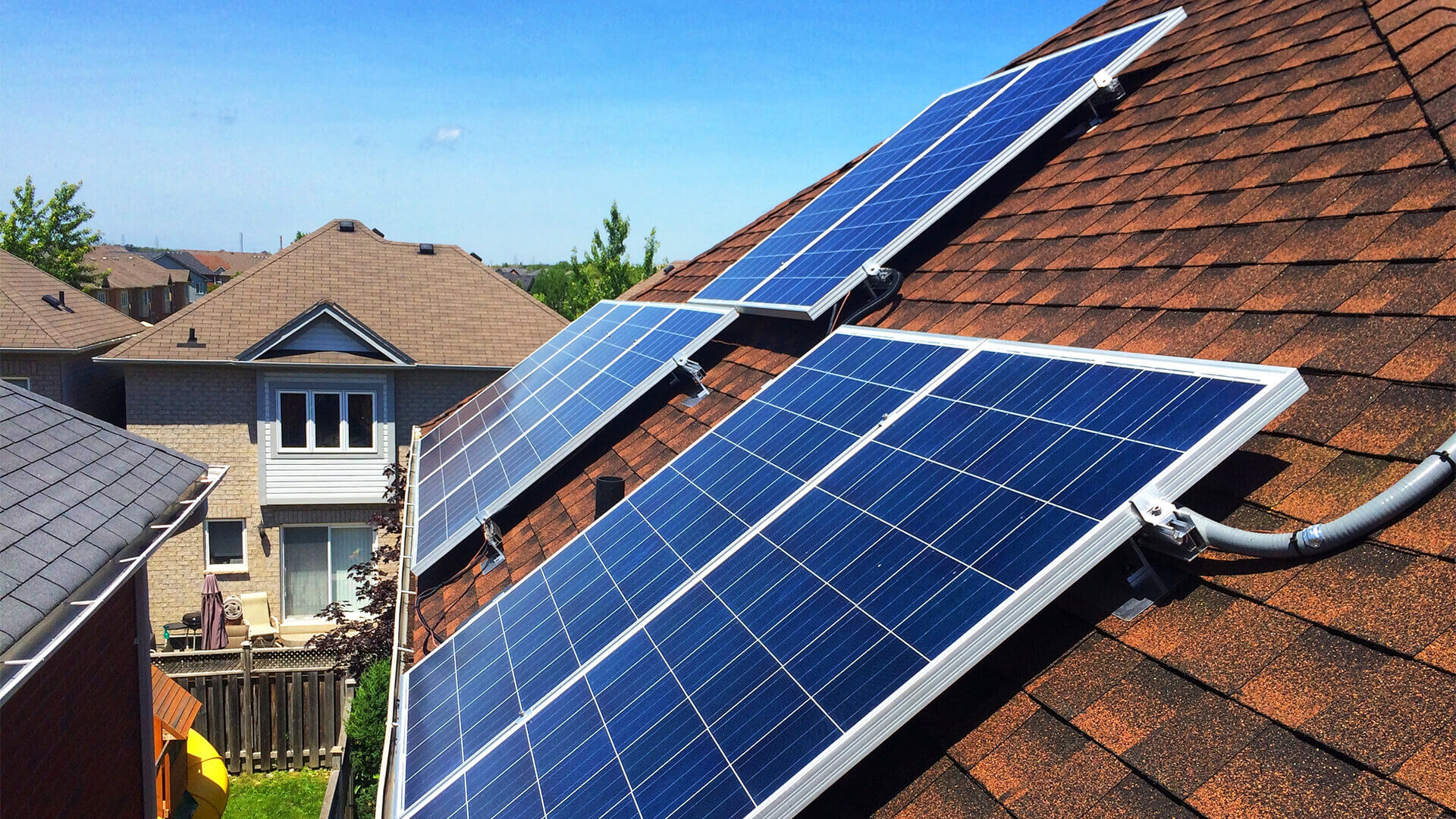
There are many ways to finance solar panels installed on your roof. You can get solar loans from banks, which often have attractive interest rates. Home equity loans, secured loans and other loans may also qualify for financing solar panels. The interest on these loans can be deducted from your tax. Regardless of the method used to finance solar panels, you should do your research to find the best loan. Here are some options.
Solar energy tax credits
For those considering installing a solar energy system on their property, tax credits are available. The credits are a dollar-for-dollar offset against the total amount of taxes due. The credit can be carried forward into the following years from the portion left over. For credit to be valid, the homeowner must own the solar system and the property. Unlike other tax credits, it is not restricted to residential property. The credits are also available for commercial and rental properties.

The federal tax credit is phasing out over the next five years. The credit will be reduced to 22% by 2023. This is an important change in tax law. In the meantime, commercial solar installations can still qualify for a 30% federal tax credit. These credits will be canceled by 2024. After that, the Federal tax credit (or Federal tax credit) will cease completely. The solar tax credit for commercial applications will however remain available.
Loans to finance solar panels
Homeowners who finance solar panels using a loan can also be eligible for a federal tax credit. For homeowners looking to make clean energy systems, there are programs that offer low interest loans from local and state governments. It is important that you shop around for the best possible option for your home to maximize the tax credit. Solar panels financing loans should be affordable and easily accessible to homeowners. Here are a few tips to help you find the best solar financing product.
Be sure to check for prepayment penalties as well as fees when you are looking for a loan. Variable interest rates or prepayment penalties may increase your monthly payment. Longer terms reduce your monthly payments, but your total interest will increase faster. Find a cash flow neutral loan. In this case, you'll pay less for the loan than you spend on electricity. Try to find the lowest rate and fees possible. There are many sources that can provide loans for financing solar panels. You could save as much as 40% over the life of your panels.
Mis-sold solar panels
The benefits of solar panels are clear: they can reduce your energy bills and save you money by reducing your carbon footprint. Solar panels are expensive and not affordable for many homeowners. There are several ways to cut down on your energy consumption and avoid being missold. Below are some tips to help you avoid being mis-sold on solar panels. Continue reading for more details.

The Consumer Credit Act (CCA), section 75 states that if a customer complains about a company's mis-selling, both the creditor as well as the finance provider will be held responsible. This means that if you have been missold solar panels through finance, you may be entitled to a reimbursement. The financial return of the system will be assessed based on the size and energy usage. TRUE Solicitors can help you get the maximum compensation for your property and home.
FAQ
Is a guarantee a service contract?
A service contract is not a warranty. It is an agreement between parties to exchange goods or services. If the product does not work as promised, the customer agrees pay for repair or replacement. This type of contract is also known as a maintenance contract.
Can I cancel or terminate my contract at any time?
Yes - but this must be done within 14 days of signing your contract. You can usually end your contract by notifying the contractor in writing at least 7 days before the contract's expiration date. You may still owe money to the contractor if you fail to give sufficient notice.
What happens when one party refuses to take their side in a deal?
The law allows you to sue the other party for damages if you don't fulfill your agreement. Damages include the amount owed in addition to interest, court costs, and legal expenses.
Statistics
- (3) The contracting officer may provide for a contract price adjustment based solely on a percentage rate determined by the contracting officer using a published economic indicator incorporated into the solicitation and resulting contract. (acquisition.gov)
- (d) Contractor disputes related to compliance with its obligation shall be handled according to the rules, regulations, and relevant orders of the Secretary of Labor (see 41 CFR60-1.1). (acquisition.gov)
- Depending on the client's trustworthiness and financial stability, a deposit is usually 10 to 50% of the total contract amount. (lawdepot.com)
- Reasonable late fees go up to 25% per year on unpaid sums. (lawdepot.com)
- (1) Except as provided in paragraphs (a)(4) and (a)(8) of this section, if the estimated amount of the contract or subcontract is $10 million or more, the contracting officer shall request clearance from the appropriate OFCCP regional office before- (acquisition.gov)
External Links
How To
What should a service contract include?
Every business relationship should have a Service Agreement (SA). It defines what you want from each other, and how you will get it. The SA also defines when and where you expect the other party to deliver on its contractual obligations.
A successful SA must include these key elements:
-
The scope of work and services required by both parties.
-
Particulars of the payment terms, including delivery dates and start dates.
-
An agreed price for your project.
-
Additional costs, such as VAT, etc.
-
Discuss any other matters.
-
Who will take care of the job if it goes wrong?
-
How disputes are resolved
-
What happens if one party breaches the contract.
-
What happens if there is a dispute
-
When does the contract take effect?
-
What happens if a party doesn't perform.
-
How long can you wait to pay invoices
-
Who pays for travel costs?
-
Where the money comes.
-
What happens if a client changes mind about the project?
-
What happens if the supplier isn't there?
-
Who has access during construction to the site?
-
What happens if the customer cancels?
-
What happens when the product is defective?
-
What happens if a manufacturer refuses to provide parts?
-
What happens if the equipment is damaged?
-
What happens if the project is delayed?
-
What happens if you don't complete the work within the set timeframe?
-
What happens if the quality of the finished project falls below expectations?
-
What happens to the cost overruns?
-
What happens when the materials are not delivered in time?
-
What happens if the material arrives damaged.
-
What happens when the products don't meet standards?
-
What happens if the job has to be canceled?
-
What happens when the company goes under?